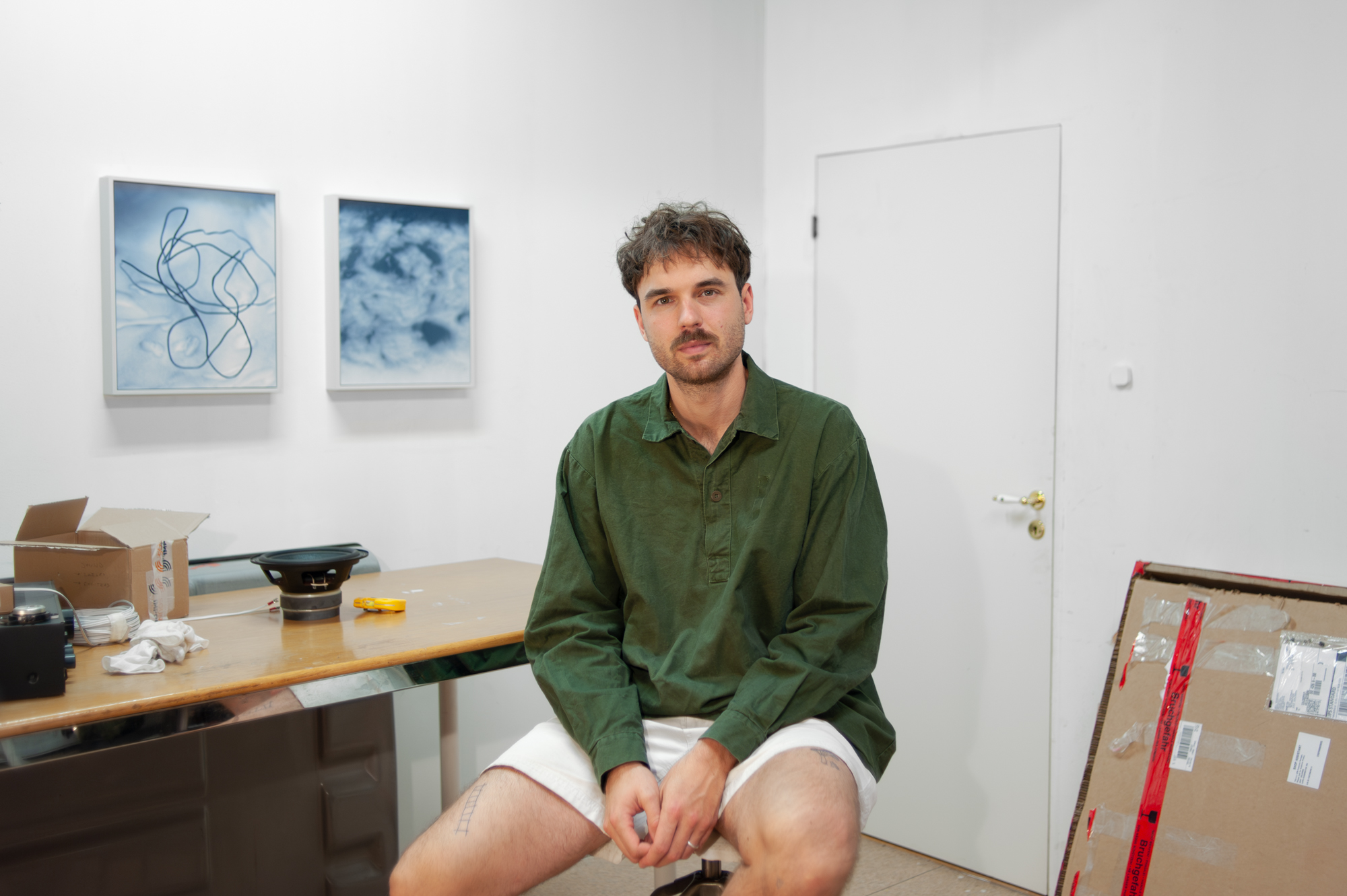




The artists nominated by
The committee appointed by Fotogalleriet for the 2023 FUTURES nomination process consisted of: artist, writer, and Dáiddadállu artists' collective member Susanne Hætta, Guovdageaidnu/Vadsø; Liv Brissach, a writer and curator at MUNCH, Oslo; Kristin Aasbø, curator and Senior Archivist at Preus, The National Museum of Photography, Horten; Miki Gebrelul, Head of Exhibitions at Fotogalleriet, Oslo, and Antonio Cataldo, Artistic Director of Fotogalleriet.
The work of Dev Dhunsi is inspired by the migratory movement of his family from South Asia. His photo-installation Ankhon Dekhi (2022) touches upon the complexity of society with its many -scapes (landscape, soundscape, mediascape) and the materiality of his photographic approach spans different media from textile to sculptural installation. As a subject with a complex historiography and layered diasporic knowledge, he focuses on the sociological character of photography.
Paulina Tamara's commitment to photography as a means of representation is manifold. Her work comprises longstanding work with youth, exploring what they're coming to know in expressing their sexuality and gender freely. In Undress, looking at a queer woman undressing (2021), Tamara invited 15 people to watch her undressing while took pictures of the session with a trigger – an exercise in looking when both taking and giving complete control over the image.
Naina Helén Jåma is a photographer working for influential Norwegian newspapers and magazines. She started her career as a South Sámi mediator in Jåhkåmåhkke at the Ájtte Museum at 13, and continues to maintain a close relationship with traditional Sámi arts. In her project Vætnoe (2018–), Jåma speaks about traditional forms in living matter in Sámi people's livelihood, and how these forms and shapes continue to be part of the technological availability of today.
Ilavenil Vasuky Jayapalan is a dissenting multidisciplinary artist. As a child of the Tamil Tigers ,and the subject of echoes of the traumatic effects of civil war, he ponders a postcolonial take on propaganda. Among the works Jayapalan has shared for FUTURES is Hello freeends 4.1 (2022), a self-portrait crafted through AI manipulation, based on what a South Asian person looks like to a machine when fed bits of information.
Bobby Yu Shuk Pui grounds her work in the queer and genderless exploration of body politics, with a critical perspective on the social norms and constructs dictating reproduction and beautification – pushed to the forefront of the capitalist agenda in Asia, where Pui began her work. In the ongoing Genetic Salon (2020–), Put presents a web of video clips, exhibitions, and other material, leading the audience into a seductive imagination of the future.


Ilavenil Vasuky Jayapalan (b. 1991) is a transdisciplinary artist based in Oslo, Norway. Exploring mechanisms of national consciousness; notions of freedom, truth and desire; and speculative futures that draw from the fringes of society, Jayaplan’s works are heavily inspired by worlds of cinema, music and media. A longtime collaborator of artists like M.I.A, Christopher Kulendran Thomas and Annika Kuhlmann, his collaborative works have been shown at a host of international music festivals – from London’s ICA to Berlin’s KW Institute for Contemporary Art. His personal work, meanwhile, has been exhibited in several Norwegian institutions, and at Tokyo’s Sezon Art Gallery.


Naina Helén Jåma (b. 1991) is a south Sami photographer, vytnesjæjjah and storyteller from Snåase, Norway. With an education in photojournalism – she has worked as both a photojournalist and photo editor for various newspapers and news agencies in Norway and Sweden – documentary approaches characterise much of her work. Among others, her images have featured in VG, Aftonbladet, Aftenposten, The New York Times, The Guardian, Huffpost, and Dagens Industri. Jåma is also a member of the Sami Artist Association.


Paulina Tamara is a Chilean-Norwegian artist based in Bergen. With an MFA in Photography from the University for the Creative Arts, London, her works address questions of gender creativity, (queer) culture, and the act of performing for the camera. Tamara’s interests lie in the space between femininity and masculinity; her ongoing archival project, The Others, portrays Norway’s queer community, whilst her Undress series offers an investigation into the female gaze – made collaboratively with a series of queer cis-woman. In recent years, her works have been exhibited at the likes of Copenhagen Photo Festival and Norway’s National Museum of Photography.


Yu Shuk Pui Bobby (b. 1994) is a visual artist based between Hong Kong and Oslo. With a collaborative approach to her practice, her work conjures the physical, tangible and affective phenomena associated with biotechnology through combinations of video, text, installation, sculpture, and performance. She often uses speculative fiction to tackle questions of human genetic engineering, reconfiguring perceptions of gender, body and historical discourses of identity. Bobby holds a BA from Hong Kong Baptist University and an MFA from Oslo National Academy of Fine Art. Her works have been in Hong Kong, Norway, Japan, China, Iceland and the USA.








Faces%252520of%252520Predictions_003.jpeg)





_014.jpeg)
